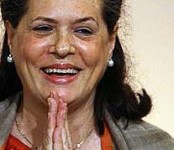Winners and losers on the box

Election morning is the media¿s big morning, time for it to unwrap for the nation the outcome of the investment politicians have made. The voter¿s focus is on news TV if it is accessible, not print or the Internet. With 165 leads coming in one hour, in the first couple of hours on election day the crucial edge is technology, not analysis. And on being able to glimpse several sets of figures simultaneously.
NDTV had the most instantly informative formatting of the results. In mapping information with clarity, it beat the others handsomely. Its electronic map using Google Earth was an useful innovation, its quadruple statistical display that gave you individual constituencies, the party position, the state position and the alliance position all at the same time made it the channel to stay with.
NDTV and Headlines Today were way ahead of the rest of the pack with the numbers, particularly the alliance position, throughout the first hours. Times Now, surprisinglyfor the on-the-ball channel it usually is, was considerably behind. Prannoy Roy said, no other country in the world casts its votes as fast as
After the initial rush of numbers come the analyses. To a man (or woman) TV pundits pick up a stock point of analysis and run with it. Prannoy Roy gave his fellow analysts the "anti-incumbency factor" several elections ago, that later gave way to the generally endorsed notion that with the rise of the regional parties, alliances and coalitions were the order of the day. In this election that wisdom had begun to turn. The suggestion during this election was that the voters are turning away from regional parties with the middle class consolidating. Economist Surjeet Bhalla spelt it out in the Business Standard before the results came out, Dileep Padgaonkar dwelt on it on Times Now on election morning, and subsequently others on NDTV and CNN IBN began to pick up on this logic.
The second pet theme in the immediate aftermath of the BJP rout became one of the rejection being because of communalism, and the ascendancy of Narendra Modi. Rajdeep Sardesai wanted to know who was the inclusive leader the BJP has, NDTV anchors badgering Nalin Kohli on Narendra Modi. Reporters at press conferences this morning and in individual interviews harped on whether the party was the poorer for having lost the more inclusive leadership of Atal Bihari Vajpayee.
The third pet theme of course was the general trumpeting of Rahul Gandhi as being the dynastic beneficiary who had suddenly proved his credentials. Several TV anchors wanted the Congress spokespersons to say when the party would dump Manmohan Singh for Rahul. After all, said M J Akbar rather crudely to Ambika Soni, Manmohan Singh had a heart condition. Soni looked frosty and declined to rise to the bait.
And then some have pet theories which they air in the considerable time they have in the studio. Shekhar Gupta¿s not entirely convincing theory has been the fact that their attempt to exploit the occurance of 26/11 even before the operation had ended, had cost the BJP. Yogendra Yadav on CNN IBN and Mahesh Rangarajan on Times Now had less clichéd, more thoughtful analyses to offer than the journalists.
Vir Sanghvi on NDTV floated no fancy theories, was sensible in his analysis
and did some of his trademark soft soaping of the Gandhi family. He told us what nice men both Rajiv Gandhi and Rahul Gandhi were, and also, at one point, what a good leader L K Advani has been. He saves his snipes for less PLU politicians.
Nobody on any channel harked back for even a moment to how all the media has been so convinced till yesterday that it was going to be a fractured verdict, nobody, naturally, asked, how did we get it so wrong?
The most memorable winner was Dayanidhi Maran who could not stop complaining about N Ram¿s prediction on the NDTV that all 39 seats in Tamilnadu would go to the AIDMK. He repeated it at least five times in the first half of the day. Asked why the DMK had done so well he listed, disarmingly, the 60 lakh TV sets distributed, apart from the Rupee 1 a kg rice.
Grace in defeat? Some managed it better than others, among the spokespersons notably Nalin Kohli, while Arun Jaitley was applauded by anchors for his sober and equanimitous press conference. The leading contender in the poor grace department was Ravi Shankar Prasad.
Lok Sabha TV and Doordarshan got left behind by their private sector competition in several ways. They are slow, and plodding, and painful. On the Web the most sought after website, that of the Election Commission of India, packed up early on, declaring that the traffic was too much. In the papers on Saturday morning the ECI had announced that they had set up a server capacity of 32 mbps and could handle upto 30 lakh hits at a time. Clearly that was not enough with a web accessing population of close to 50 million.






